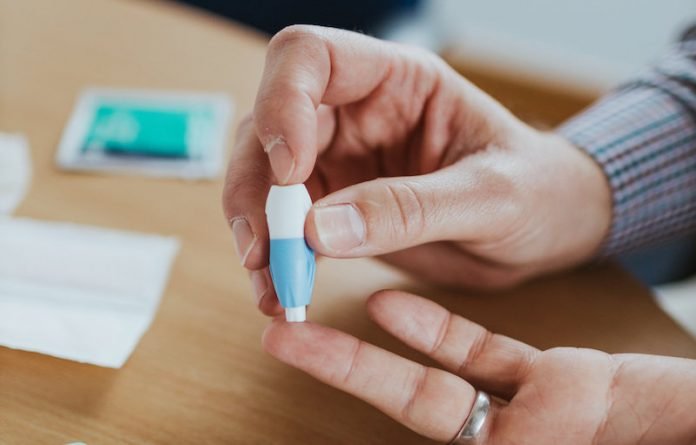
In a study from Cardiff University, scientists found a finger-prick blood test can identify people most at risk of being reinfected with COVID-19.
The simple test measures the presence of immune T cells that can recognize SARS-CoV-2.
In the study, more than 300 volunteers were recruited from across the U.K. in early 2022 to assess the novel test.
People with the largest T cell response to the virus were best protected from COVID-19 over the following three months, regardless of their levels of antibodies to the virus.
The finger-prick tests can help determine which people are most vulnerable, and who might need more focused interventions such as repeated booster vaccinations.
The team notes the test brings the focus away from “just measured” antibody responses to take into account T-cell-mediated immunity.
Previous efforts to identify those least protected from reinfection have focused on quantifying antibodies recognizing the surface spike protein of SARS-CoV2.
Although measuring antibodies on a larger scale in a population is relatively easy, the levels do not give the full picture of protection from re-infection, especially as variants of SARS-CoV-2 emerge.
The study highlighted the potential for a more accurate assessment of an individual’s immunity to COVID-19.
Historically, large-scale testing for T cell responses to SARS-CoV-2 has proven challenging until now.
The new test used a simple finger-prick blood sample collected at home and sent to a laboratory by post allowing anyone within the U.K. to be part of the study.
The team says their work highlights the need to assess how long immune responses persist in the population, with uncertainty around whether repeated booster vaccinations will be required in the future, and who will need them.
The team says long-term immunity screening using such a test would allow us to monitor the longevity of responses that prevent COVID-19 and identify the most vulnerable members of our society who may need earlier booster vaccinations.
If you care about Covid, please read studies about new way to prevent COVID-19 variants, and the differences between the flu and COVID-19.
For more information about COVID, please see recent studies about drug that can offer much-needed COVID-19 protection, and results showing new antibody treatment for COVID-19.
The study was conducted by Dr. Martin Scurr et al and published in Nature Communications.
Copyright © 2022 Knowridge Science Report. All rights reserved.



